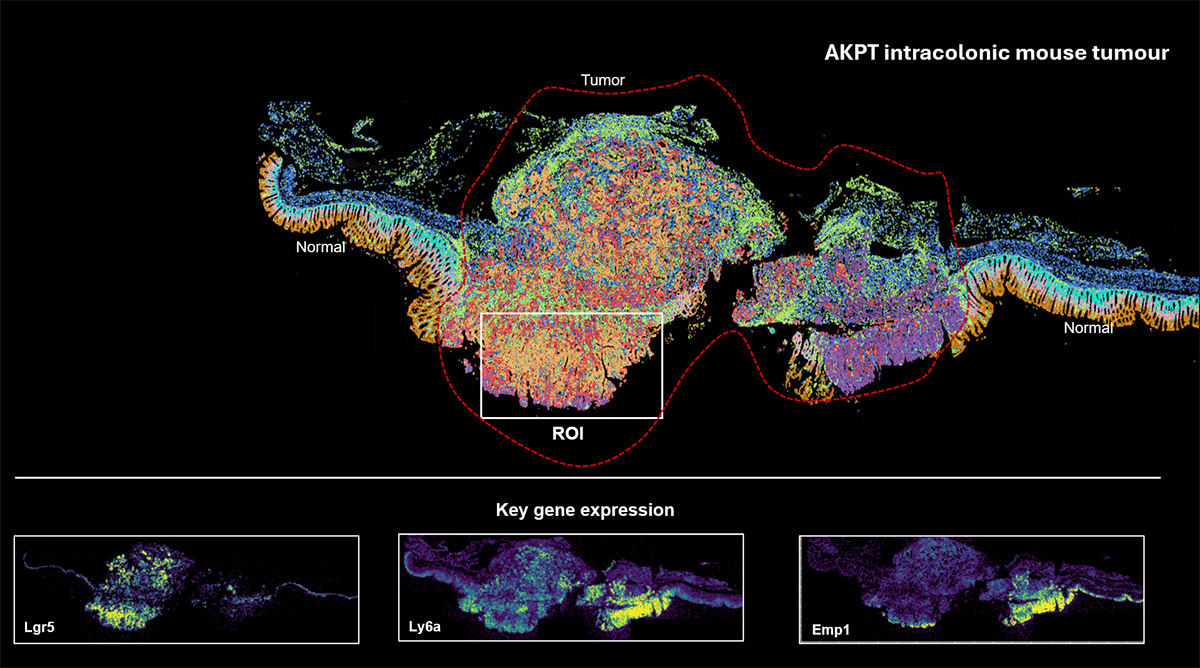Bowel Cancer in the Spotlight as Network Members Lead New Research Towards Personalised Treatment

MRC National Mouse Genetics Network (NMGN) members from the Cancer Cluster and the new Data Platform initiative are at the centre of a new project announced on the 31st of March by Cancer Research UK.
The new initiative called CRC-STARS ( Colorectal Cancer — Stratification of Therapies through Adaptive Responses) is jointly funded by Cancer Research UK (£2m), the Bowelbabe Fund for Cancer Research UK (£2m), philanthropic support from Bjorn Saven CBE and Inger Saven (£1m), and the Scientific Foundation of the Spanish Association Against Cancer (FCAECC, €600,000 [~£500,000]).
The network Involvement is significant with Director Owen Sansom, and Simon Leedham co-leading the project. Philip Dunne (Cancer Cluster) and Crispin Miller (NMGN Data Platform) are also named as members of the international project team.
Making the best use of data originating from multiple sources, such as patients, model systems, and other experimental platforms, is a key element of this endeavour that aims to capitalise on sharing and collaboration to identify and further characterise cancer subtypes and their responses to treatment to point to individual therapeutic interventions.
Network Director, Director of the CRUK Scotland Institute and project co-lead Owen Sansom said:
“The integration of model systems with patient data and sophisticated analysis methods is an exciting prospect. Step by step, day by day, we’re discovering new ways to prevent, detect and treat bowel cancer and save lives. The support we’ve received from our funders will allow us to take bold steps towards better understanding bowel cancer and how to beat it.”
Cancer Cluster Member and project co-lead, Simon Leedham from the Nuffield Department of Medicine University of Oxford said:
“CRC-STARS will combine the power of mouse models together with unique temporally spaced human tissue samples from clinical trials to allow us to understand tumour adaptive responses to therapeutic selective pressures. We hope this will allow us to deploy spatial biology technologies to generate new cellular markers of treatment response and to identify new signalling targets to counteract tumour adaption and enhance cancer cell killing.”
Cancer Cluster Member and project participant, Philip Dunne from Queen’s University Belfast and CRUK Scotland Institute said:
“This work represents the culmination of network-wide collaborative research over the last 10 years, using human and mouse tumour data, all of which aims to improve our understanding of bowel cancer and to improve patient responses to treatment.
The recently announced funding will enable our teams to utilise some of the models and technologies emerging from the NMGN cancer cluster, enabling more accurate disease-positioning of genetically engineered autochthonous animal models with patient samples collected from a series of recent practice-changing clinical trials in both colon and rectal cancer.
By combining patient data with preclinical models, we aim to improve predictions of which treatments will work best for each person. We will utilise advanced multi-omic and spatial profiling methods to reveal how cancer cells interact with healthy cells, and how these communication networks influence a patient’s response to treatment.
Building on the support from the NMGN, and the step-change advances in mouse modelling and data analysis that have emerged from our cluster, this programme will ensure that our clinical and translational goals can continue to move forward.”